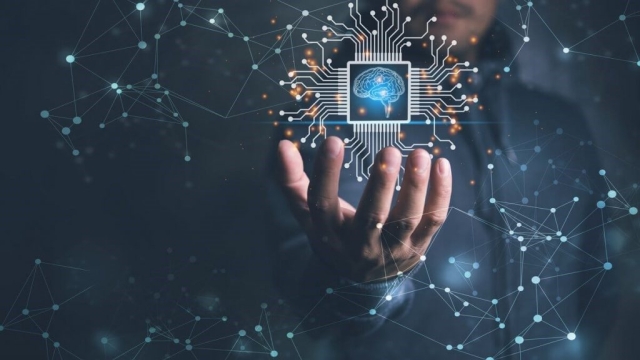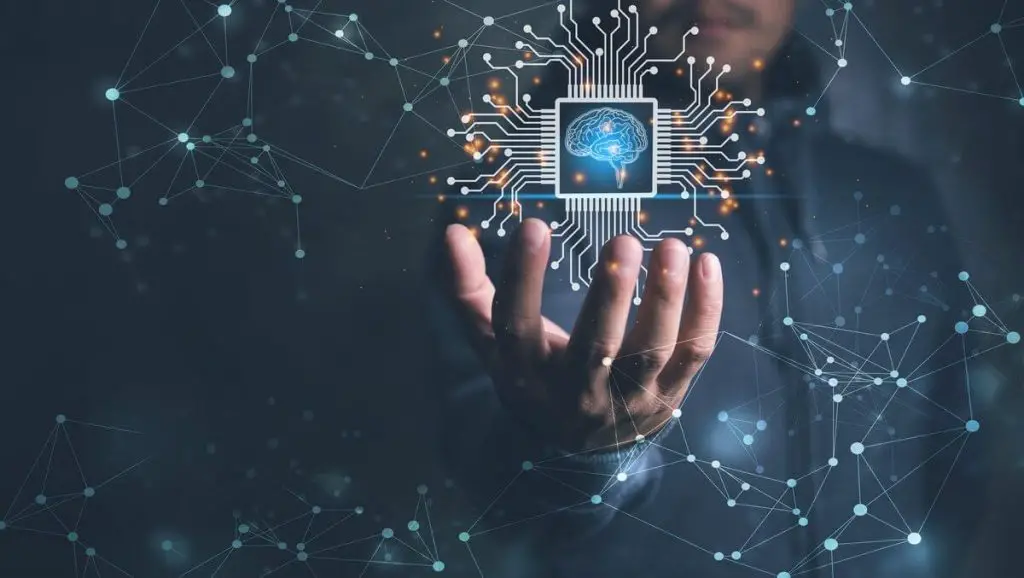
The Rise of Artificial Intelligence: Unlocking the Future

Artificial intelligence, a field that seemed like pure science fiction just a few decades ago, has now become an indispensable part of our everyday lives. This rapidly advancing technology is reshaping the world as we know it, offering countless possibilities and pushing the boundaries of what we once thought was possible. From self-driving cars to virtual assistants, artificial intelligence has integrated itself into various aspects of our society, revolutionizing the way we live, work, and interact.
The rise of artificial intelligence, also known as AI, can be credited to the significant advancements made in the field of computer science. With the exponential growth in computing power and the development of sophisticated algorithms, AI technology has become increasingly capable of simulating human intelligence and performing complex tasks that traditionally required human intervention. As a result, we now find ourselves on the cusp of a new era, where machines can learn, reason, and make decisions, mirroring some of the cognitive abilities of the human mind.
Applications of Artificial Intelligence
Artificial Intelligence (AI) has rapidly gained prominence in various sectors due to its ability to revolutionize and streamline processes. This transformative technology is making its mark in diverse domains, proving to be an invaluable asset for businesses, researchers, and individuals alike. By harnessing the power of AI, organizations can enhance decision-making, improve efficiency, and unlock new opportunities. Let’s explore some of the notable applications of artificial intelligence.
Healthcare Industry:
In the realm of healthcare, AI is making significant strides. Medical professionals are leveraging AI-powered systems to analyze complex medical data, diagnose diseases, and design personalized treatment plans. Additionally, AI is instrumental in detecting patterns and anomalies from patient records, which helps in identifying potential health risks and preventing them early on. By augmenting the capabilities of healthcare practitioners, AI is revolutionizing patient care and improving outcomes.Finance and Banking:
Artificial intelligence is reshaping the financial landscape by enabling automation, enhancing security, and optimizing operations. AI-powered algorithms are employed to make accurate predictions, detect fraudulent activities, and provide personalized financial recommendations to customers. With the help of AI, financial institutions can efficiently analyze vast amounts of data, identify market trends, and make informed investment decisions. Moreover, virtual assistants powered by AI have emerged, providing customers with personalized banking experiences round-the-clock.Transportation Industry:
The transportation sector is embracing AI to improve efficiency, safety, and sustainability. AI algorithms are employed in traffic management systems to optimize routes, reduce traffic congestion, and enhance travel experiences. Self-driving vehicles, fueled by AI technologies like computer vision and machine learning, are being developed to revolutionize transportation by eliminating human errors and reducing accidents. AI also facilitates predictive maintenance in the transportation sector by using data analytics to anticipate maintenance needs, leading to cost savings and improved reliability.
In conclusion, AI has become a game-changer across multiple sectors, unlocking groundbreaking possibilities and transforming industries. From healthcare to finance and transportation, the applications of artificial intelligence are reshaping the way organizations operate and improving quality of life. As AI continues to evolve and advance, we can expect even greater integration and innovation, propelling us into an exciting future.
Challenges and Ethical Considerations
Artificial intelligence presents a range of challenges and ethical considerations that cannot be overlooked. As this technology continues to advance rapidly, it becomes crucial to address these concerns to ensure its responsible and beneficial integration into society.
Firstly, a significant challenge lies in the potential impact of artificial intelligence on the job market. With the automation of various tasks, there is a growing concern about potential job displacement. It is essential to find ways to reskill and upskill the workforce to adapt to this changing landscape and ensure that individuals are not left behind.
Secondly, privacy and data security emerge as vital ethical considerations in the realm of artificial intelligence. As AI systems rely on vast amounts of data to function effectively, there is an inherent risk of data breaches and misuse. Striking a balance between utilizing data for innovation and protecting individuals’ privacy rights poses a complex challenge that requires careful regulation and oversight.
Lastly, bias and discrimination within AI algorithms pose another significant ethical consideration. Machine learning algorithms learn from data, and if that data contains biases, it can result in algorithmic bias. This can lead to unfair outcomes and perpetuate existing societal inequalities. Striving for fairness and transparency in AI decision-making processes is of utmost importance to ensure unbiased and just outcomes.
Addressing these challenges and ethical considerations demands a multidisciplinary approach involving policymakers, researchers, and industry experts. By promoting transparency, establishing robust regulations, and fostering public discourse, we can unlock the full potential of artificial intelligence while safeguarding its impact on society.
Virtual Front Desk
Impacts on Society and the Economy
Artificial intelligence has undeniably made a significant impact on society and the economy. Its adoption across various sectors has brought about both positive and negative consequences.
Firstly, the integration of artificial intelligence in industries has revolutionized productivity and efficiency. With AI-powered automation systems, businesses have experienced streamlined operations, reduced costs, and enhanced output. Tasks that were once time-consuming and prone to errors can now be accomplished at an unprecedented speed and accuracy. This has not only led to increased profits for businesses but has also created new employment opportunities, particularly in the field of AI research and development.
On the other hand, there are concerns regarding the potential job displacement caused by AI. As machines become more capable of performing complex tasks, there is a fear that certain jobs may become obsolete. However, history has shown that as new technologies emerge, they also create a demand for new skillsets. While traditional roles might be transformed, there may be a shift towards jobs that require human creativity, problem-solving, and emotional intelligence – qualities that are difficult for AI to replicate.
Furthermore, the ethical implications of artificial intelligence have raised heated debates in society. Issues such as privacy, security, and bias in AI algorithms have come into focus. As AI systems increasingly impact our lives, the need for clear regulations and guidelines becomes crucial to protect individuals and ensure fair and unbiased AI decision-making. The responsibility lies not only with developers and policymakers but with society as a whole, as we navigate the societal and economic changes brought about by the rise of artificial intelligence.



